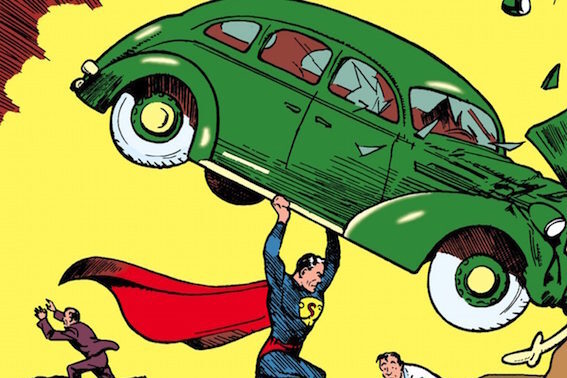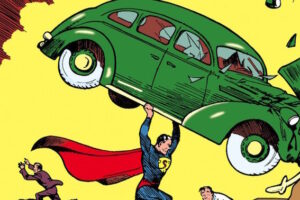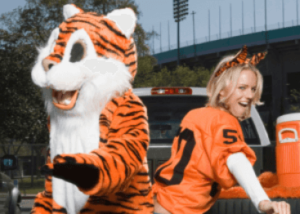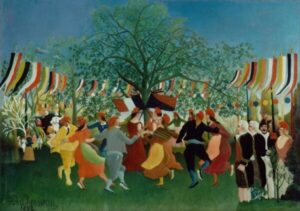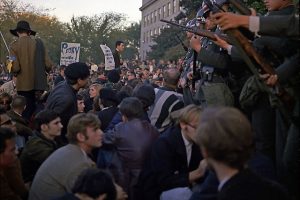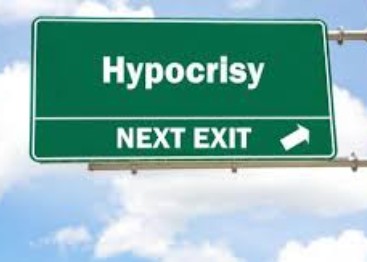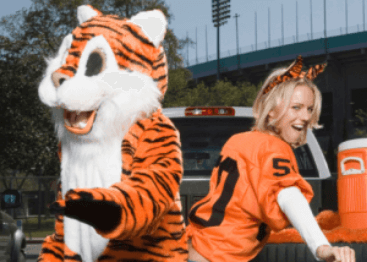10 Music Artists Sued for Sampling Without Permission
Ever heard a song that gave you an odd sense of déjà vu? Like you know you’ve heard that beat somewhere before? Well, chances are you’re picking up on something called sampling—a clever, sometimes controversial trick where artists take a piece of an existing track and fold it into something new. It’s like giving an old tune a second life… with a twist.
Sampling didn’t just pop up in the digital age. In fact, this practice goes all the way back to the 1970s. According to the Guinness World Records, the first song ever credited with sampling was 1971’s “He’s Gonna Step on You Again”, a funky rock track that laid the groundwork for what would become a music revolution. But it wasn’t until the early ‘90s—right at the heart of hip hop’s golden age—that sampling exploded into mainstream culture.
Two of the biggest anthems of that time, MC Hammer’s “U Can’t Touch This” and Vanilla Ice’s “Ice Ice Baby,” made headlines not just for their catchy hooks, but for where those hooks came from. Hammer’s beat was lifted straight from Rick James’ ultra-funky “Superfreak,” while Vanilla Ice rode the iconic bassline of “Under Pressure” by Queen and David Bowie. What’s wild? Neither artist originally got permission to use those samples—leading to massive legal battles and public backlash.
This sparked a trend that’s still very much alive today: turning familiar sounds into fresh hits, and sometimes ending up in court because of it. Sampling has become almost a ritual in the world of music creation. It blends nostalgia, innovation, and a bit of legal gray area into one head-nodding package.
10. Nicki Minaj vs. Tracy Chapman: The Sampling Saga That Ended in a $450,000 Settlement
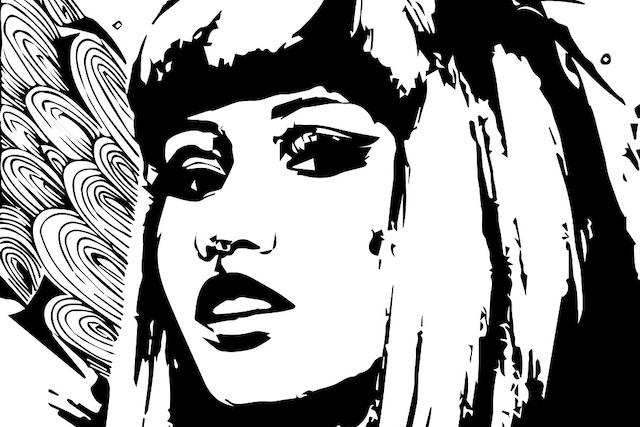
In 2018, Nicki Minaj found herself at the center of a copyright controversy after releasing a song called “Sorry”, which sampled lyrics and music from Tracy Chapman’s iconic 1988 track “Baby, Can I Hold You”. Sampling in the music industry is nothing new, but when it involves a legendary artist like Chapman and a global superstar like Minaj, things tend to get complicated—and very public.
Here’s how the drama unfolded. Minaj and her team knew the music industry’s rules: if you want to use someone else’s work, you need permission. So, they reached out to Tracy Chapman with a formal request to sample her song. Chapman, however, said no. Understandably so—her music is her art, and she had the right to control how it was used. But Minaj’s team didn’t take the hint. They sent multiple requests, hoping to wear Chapman down. Yet, Chapman stood her ground. She wasn’t budging.
That’s when things took a turn. Despite Chapman’s clear refusal, Minaj went ahead and used the sample anyway. The song wasn’t included on Minaj’s 2018 album, but that didn’t stop it from finding its way into the public sphere. According to reports, the song was “accidentally” leaked to a DJ, who then played it on the radio. Of course, in today’s digital age, “accidental leaks” often feel more like calculated moves than genuine mistakes. In this case, the song ended up on Funkmaster Flex’s social media and radio show, where it quickly gained attention.
Chapman, understandably upset, wasted no time filing a copyright infringement lawsuit against Minaj. The case dragged on for two years, with both sides likely weighing the risks and rewards of continuing the legal battle. In the end, Minaj decided to settle. She offered Chapman $450,000, which Chapman accepted, bringing the case to a close.
This incident sparked a lot of debate about the ethics of sampling in the music industry. On one hand, Minaj’s team knew they didn’t have permission, yet they proceeded anyway. On the other hand, Chapman’s refusal to license the sample left Minaj with limited options, especially in an industry where artists often push boundaries to create something new.
For fans of both artists, this case serves as a reminder of the complexities of music creation and the importance of respecting intellectual property. It also highlights the fine line between artistic inspiration and outright infringement. While the settlement may have resolved the legal battle, it left many wondering: could this have been avoided?
9. The Biz Markie Lawsuit That Shook the Music Industry
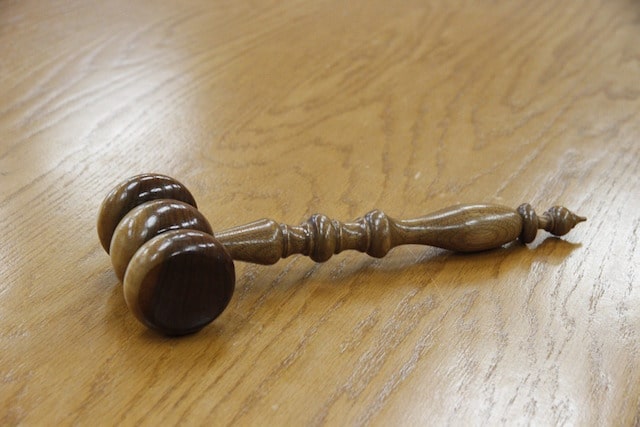
If you’ve never heard of Biz Markie, picture this: a quirky, lovable figure in early hip hop who brought a weird kind of charm to every track he touched. The guy wasn’t just a rapper—he was a vibe. But in 1991, that fun-loving energy collided with something way less groovy: the first major lawsuit over music sampling.
Before this legal bombshell, sampling had been kind of a wild west. Artists were borrowing beats, loops, and melodies left and right, often without worrying too much about permission. That all changed when Biz dropped a track called “Alone Again”—a song that heavily sampled Gilbert O’Sullivan’s 1972 hit “Alone Again (Naturally)”.
Here’s the kicker: Biz actually asked O’Sullivan for permission. The answer? A firm no. But Biz went ahead anyway and released the song, thinking maybe it would fly under the radar. It didn’t. O’Sullivan wasn’t having it—and instead of settling quietly like others had done before, he took the matter to court.
And that’s where things got ugly.
The judge didn’t just rule against Markie—he slammed him. Biz was ordered to pay $250,000 in damages. The album was pulled. The track was blocked from release. And in a move that sent chills down the music industry’s spine, the judge referred the case to criminal court, calling it theft.
Although Biz Markie was never criminally prosecuted, the impact was seismic. Record labels scrambled. Tracks that had already been recorded—sometimes full albums—were shelved or buried if sample rights couldn’t be cleared. Studios started to realize they weren’t just dealing with creative freedom anymore—they were staring down major legal and financial risks.
This single case rewrote the rules of music sampling. It set a legal precedent that basically said: “You sample it, you better pay for it.” From that point on, artists had to play by a new set of rules, where the original creators finally got the credit—and the cash—they deserved.
8. MC Hammer vs. Rick James: The Sampling Controversy Behind “U Can’t Touch This”
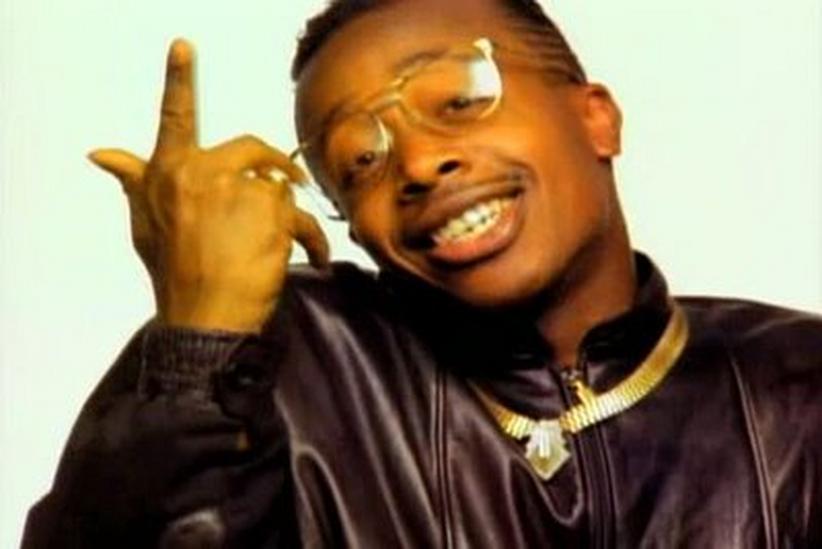
When MC Hammer released “U Can’t Touch This” in 1990, it became an anthem of the 90s. The peppy beat, Hammer’s iconic dance moves, and his flashy style made it a cultural phenomenon. Kids across the suburbs were bopping along, but what many of them didn’t realize was that the song’s catchy baseline wasn’t original—it was lifted directly from Rick James’ 1981 hit “Super Freak”. And here’s the kicker: MC Hammer never asked for permission to use it.
The sampling was blatant. The baseline of “Super Freak” served as the entire musical backbone of “U Can’t Touch This,” and Rick James wasn’t about to let it slide. When he heard Hammer’s track, he was furious. Sampling without permission is a serious violation of copyright law, and James wasted no time filing a lawsuit.
The case was eventually settled out of court, but the outcome was more than just a slap on the wrist for Hammer. James didn’t just walk away with a payout—he also earned a songwriting credit on “U Can’t Touch This.” That credit turned out to be a game-changer for James. Not only did it give him a share of the song’s profits, but it also earned him something he had never achieved before: a Grammy Award. In 1991, Rick James was nominated—and won—Best R&B Song for “U Can’t Touch This,” marking the only Grammy of his career.
The settlement also ensured that James would continue to earn royalties from the song for years to come. Given the massive success of “U Can’t Touch This,” it’s safe to say that James made a small fortune from the royalties alone. The song not only dominated the charts but also became a staple of pop culture, and James’ contribution to its success was undeniable—whether Hammer intended to acknowledge it or not.
This case became a landmark example of the legal and ethical complexities of sampling in the music industry. For Hammer, it was a costly oversight. For James, it was a belated victory that brought him long-overdue recognition and financial rewards. And for fans, it’s a reminder of how sampling can blur the lines between creativity and controversy.
7. The Ice Ice Baby Sampling Scandal: When Vanilla Ice Faced the Music
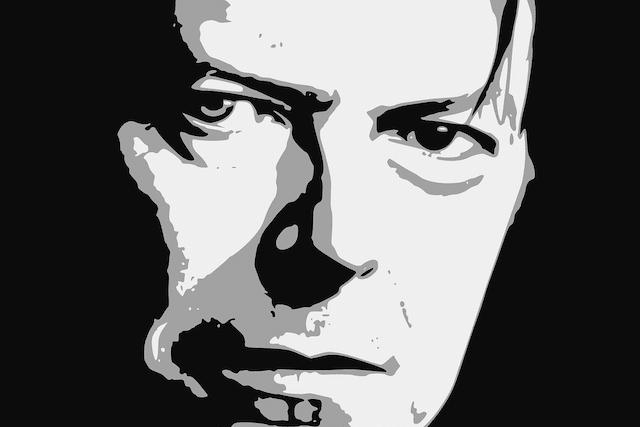
Ah, the ’90s. A time of neon, mixtapes, and one unforgettable hook that burned itself into every dance floor—“Ice Ice Baby”. Released in 1990 by Vanilla Ice (real name Rob Van Winkle), the song skyrocketed to fame and made him the first rapper to top the Billboard Hot 100. But its meteoric rise came with an awkward twist: the song’s iconic bass line wasn’t exactly his own.
That addictive riff? It was lifted—nearly note for note—from “Under Pressure”, a 1981 collaboration between Queen and David Bowie. Now here’s where it gets cringey. Vanilla Ice went on camera and—brace yourself—tried to claim the bass lines were different by adding a single beat and mimicking both riffs with his mouth. The result? Proof they were basically identical.
Embarrassing? Oh yes. But also, legally dangerous.
Queen’s Brian May and Bowie weren’t amused. They sued. Vanilla Ice eventually backed down and, according to his own interviews, settled for $4 million. He also claimed, in a bizarre twist years later, that he ended up buying the rights to “Under Pressure” because it was cheaper than shelling out royalties.
Seems like a clever fix… except Queen’s side wasn’t exactly on board with that version of the story.
Brian May publicly responded, saying no, Vanilla Ice did not buy the rights, but rather, “an arrangement was made” that gave Queen and Bowie shared credit and royalties. So, while Vanilla Ice may have kept the song in circulation, he certainly didn’t walk away unscathed.
This incident became one of the most talked-about moments in sampling history—part lawsuit, part meme, and all-around unforgettable. It was another reminder to artists: if you’re going to build on someone else’s beat, you better bring a contract, not just confidence.
6. Chuck Berry Sued the Beach Boys Over “Surfin’ USA”: A Tribute That Backfired
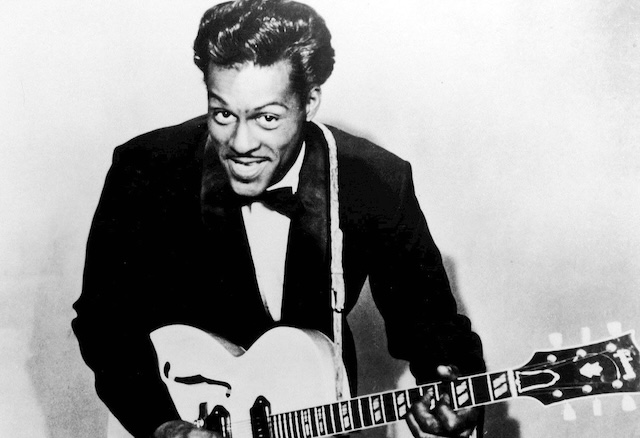
In 1963, The Beach Boys released “Surfin’ USA,” a song that became one of their most iconic tracks. Written by Brian Wilson, it was a peppy, upbeat anthem that captured the spirit of California’s surf culture. But what many fans didn’t realize at the time was that the song bore a striking resemblance to Chuck Berry’s 1958 hit “Sweet Little Sixteen.” In fact, it wasn’t just a resemblance—it was a near carbon copy.
Brian Wilson later admitted that “Surfin’ USA” was heavily inspired by Berry’s song. While Wilson claimed it was meant as a tribute or homage, the similarities were undeniable. Wilson had essentially taken the musical structure and melody of “Sweet Little Sixteen” and reworked it into his own composition. The opening riff, the chord progression, and even the lyrical flow were almost identical.
When Chuck Berry heard “Surfin’ USA,” he wasn’t amused. While some reports suggest he actually liked the song, Berry wasn’t about to let The Beach Boys cash in on his work without credit—or compensation. His label quickly contacted The Beach Boys’ management, which at the time was run by Brian Wilson’s father, Murry Wilson. Faced with the threat of legal action, Murry handed over the publishing rights to “Surfin’ USA” to Chuck Berry.
For The Beach Boys, this was a devastating blow. Not only did they lose the rights to their own song, but they also lost out on royalties entirely. To make matters worse, they didn’t even realize it at the time. It wasn’t until 25 years later—in the mid-1980s—that they discovered the truth. By then, “Surfin’ USA” had become one of their most successful tracks, yet all the profits had gone to Chuck Berry, who was credited as the sole writer.
The situation highlights the fine line between inspiration and outright copying in the music industry. While Brian Wilson may have intended “Surfin’ USA” as a nod to his idol, the lack of credit and compensation left a sour taste for The Beach Boys. It also served as a cautionary tale about the importance of songwriting credits and protecting your work.
For Chuck Berry, the outcome was a rare victory in a career that often saw him struggling for recognition and fair pay. Berry, often called the “Father of Rock and Roll,” had a long history of being underappreciated, and this case was a reminder of his enduring influence on the genre.
The story of “Surfin’ USA” and its legal aftermath is a fascinating example of how music can spark both creativity and conflict. It’s also a reminder of how easily credit can be overlooked—and how important it is to fight for what’s rightfully yours.
5. Ice Cube Got Sued by Mr. Rogers—and It Was as Weird as It Sounds
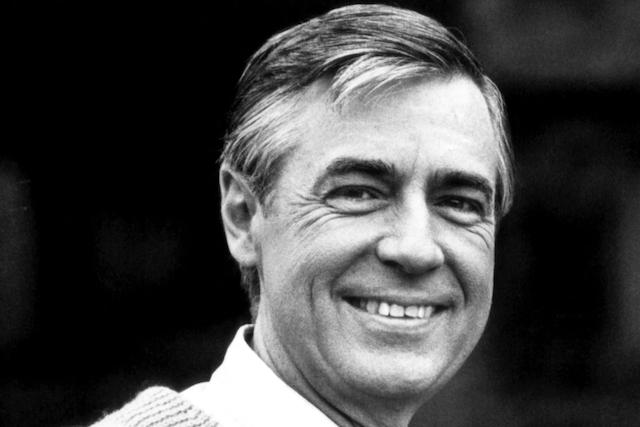
When you think of Mr. Rogers, you picture cardigans, gentle life lessons, and wholesome jingles—not lawsuits and hip hop feuds. But believe it or not, Fred Rogers once went toe-to-toe with none other than Ice Cube, one of the fiercest voices in early ‘90s rap.
The unexpected legal drama started in 1990 with Ice Cube’s debut solo album. On the track “A Gangsta’s Fairytale”, Cube opened with a playful twist on Mr. Rogers’ famous intro, using a sample from the theme song to Mister Rogers’ Neighborhood. You know the line—“It’s a wonderful day in the neighborhood…” Cube flipped it into something a little darker, fitting the gritty tone of his storytelling.
But Mr. Rogers? He wasn’t feeling the remix.
Despite Cube’s team reportedly asking for permission and being denied, they went ahead and used the snippet anyway. The result? A lawsuit. Yup, the soft-spoken TV icon turned copyright enforcer. According to Ice Cube, Rogers’ legal team claimed he deserved royalties not just because of the sample, but because his name was mentioned in the track.
For a while, Rogers earned a reported five cents per album sold—until the sample was eventually removed in later versions of the track.
What makes this story even more unbelievable is how it blurs the line between two entirely different cultural worlds. On one side, a gangsta rap pioneer painting harsh urban realities. On the other, a beloved children’s host trying to keep his brand squeaky clean. And yet, somehow, they collided in court over a beat.
Want more tales like this? Explore surprising celebrity lawsuits that prove truth is stranger than fiction.
This wasn’t just another copyright case—it was a reminder that no matter how innocent a tune sounds, using it without clearance can cost you, even if it comes from a man known for kindness and puppets.
4. Run-DMC vs. The Knack: A 20-Year-Old Sampling Dispute That Ended in Court
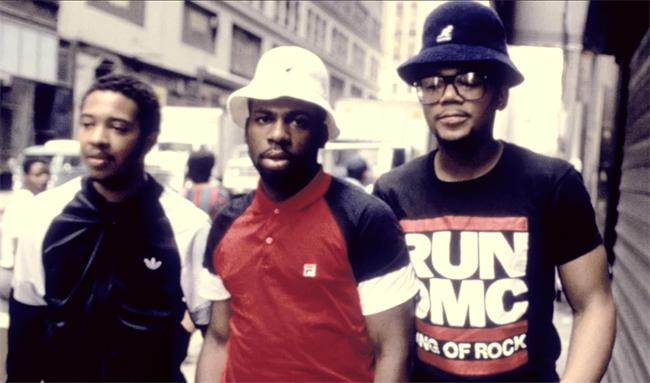
Run-DMC is a name that needs no introduction in the world of hip-hop. As pioneers of the genre, they revolutionized rap music and laid the groundwork for countless artists who followed. One of their most iconic tracks, “It’s Tricky”, from their 1987 album Raising Hell, is a prime example of their groundbreaking style. But what many fans didn’t realize at the time was that the song sampled a riff from The Knack’s 1979 hit “My Sharona”—a move that would come back to haunt them decades later.
The sampling of “My Sharona” in “It’s Tricky” was subtle but unmistakable. The Knack’s riff, which had become a defining feature of their song, was woven into Run-DMC’s track, giving it a funky, rock-infused edge. At the time, sampling was a relatively new practice in hip-hop, and while it was often met with mixed reactions, it rarely led to legal action—at least not immediately.
For nearly 20 years, The Knack seemed to have no issue with Run-DMC’s use of their riff. That changed in 2005, when The Knack’s frontman, Doug Fieger, reportedly stumbled upon the song and realized his band’s music had been sampled. Fieger claimed that he had never heard of “It’s Tricky” until that point and that no one had ever brought the sampling to his attention. Whether this was true or not, The Knack decided to take action.
In 2006, The Knack filed a lawsuit against Run-DMC for copyright infringement, claiming they had been unfairly compensated—or not compensated at all—for the use of their music. But The Knack didn’t stop there. They also sued iTunes, Napster, and other platforms that distributed the song, arguing that these services were profiting from the unauthorized use of their work.
The legal battle dragged on for several years, with Run-DMC and their representatives likely arguing that the sampling was a homage to The Knack’s music and that the use of the riff fell under the umbrella of “fair use.” However, copyright law is notoriously murky when it comes to sampling, and The Knack was determined to fight for what they believed was owed to them.
In 2009, the case was finally settled out of court. While the exact terms of the settlement remain undisclosed, it’s widely believed that Run-DMC and their label agreed to pay The Knack an undisclosed sum to resolve the dispute. The settlement also likely included agreements to credit The Knack for their contribution to the song, though this was never officially confirmed.
The case sparked a renewed conversation about the ethics and legality of sampling in hip-hop. For many fans, it raised questions about whether older artists were entitled to royalties for samples used in newer music, even decades after the original song was released. For Run-DMC, it was a reminder of how long the ripple effects of sampling could last—and how easily forgotten collaborations or inspirations could resurface with legal consequences.
Interestingly, The Knack’s lawsuit came at a time when the band itself was no longer active. They had disbanded in the mid-1980s after the success of “My Sharona” and a few follow-up albums, only to reunite briefly in the late 1990s and early 2000s. Some fans speculated that the lawsuit was less about seeking justice and more about a cash grab by Fieger, who was reportedly struggling with health issues and financial difficulties at the time.
The case also highlighted the broader challenges of navigating copyright law in the digital age. With platforms like iTunes and Napster making music more accessible than ever, artists and labels were increasingly aware of the potential for unpaid royalties. The Knack’s lawsuit against these platforms was a small but significant part of a larger legal trend aimed at holding distributors accountable for the music they sold.
For Run-DMC, the lawsuit was a bittersweet chapter in their legacy. While it didn’t diminish their impact on hip-hop, it served as a reminder of the complexities of sampling and the importance of clearing samples—or at least being prepared for the possibility of legal action years down the line.
3. Diddy Sampled Sting Without Asking—And It’s Still Costing Him Thousands a Day
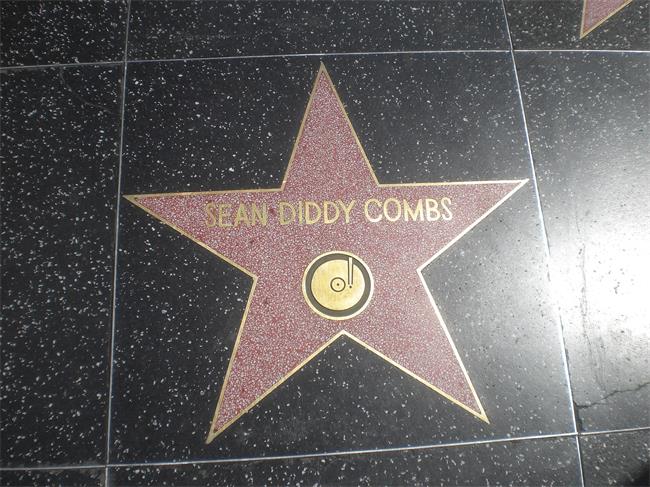
You probably remember “I’ll Be Missing You”—the emotional tribute track Diddy (then Puff Daddy) released in 1997 after the tragic death of The Notorious B.I.G.. The song struck a global nerve and became an instant hit, dominating radio and music charts. But beneath the heartfelt surface was a legal surprise: the entire melody is built around “Every Breath You Take” by The Police—a song written and owned by Sting.
Here’s the wild part: despite Diddy being one of the biggest producers on the planet at the time, he didn’t get permission to use the sample. No clearance. No deal. Just vibes.
According to Sting, it was Elton John who first tipped him off. In an interview, he said Elton called him after hearing Diddy’s track on the radio and casually told him, “You’re about to become a millionaire.” And he wasn’t joking.
Sting claimed that he was receiving $2,000 per day in royalties from Diddy. Later on, Diddy corrected the number to $5,000 a day, then backtracked by saying it was all just a joke. Whether it’s two grand or five, one thing’s for sure—Sting made a fortune off that unlicensed sample.
To put it in perspective: if Sting really is earning $2,000 daily from that one track, that’s over $700,000 every year, just for doing absolutely nothing. Copyright law in music is no joke.
What makes this story so unforgettable isn’t just the money. It’s the irony. A tribute song meant to honor a fallen friend turned into one of the most lucrative licensing blunders in music history.
When you hear that haunting chorus—“Every step I take…”—just know that somewhere, Sting might be sipping tea, smiling at his mailbox.
2. One Song, Three Artists, and a Legal Loop: The Wild Copyright Battle Behind “Creep”
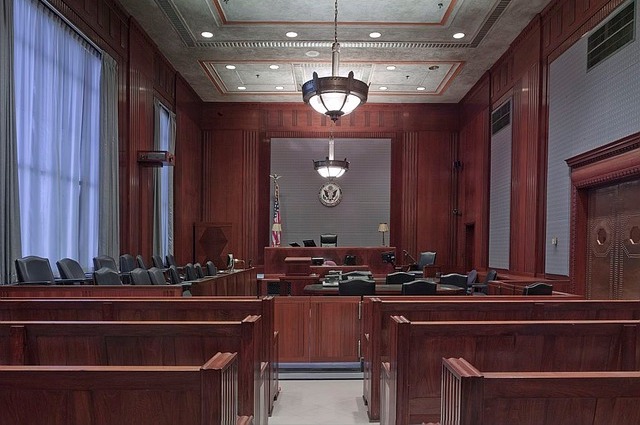
Sometimes, a melody is just too good to go unnoticed—or unborrowed. That’s what happened with the iconic track “Creep” by Radiohead, a song that’s seen more legal back-and-forth than most courtroom dramas. And here’s the twist: Radiohead was sued for copying it, then later threatened to sue someone else for doing the same thing.
Let’s rewind. Back in the ’90s, songwriters Albert Hammond and Mike Hazlewood—you might know them from the classic tune “The Air That I Breathe” by The Hollies—noticed some strong similarities between their song and “Creep.” And by similarities, we mean parts of the chord progression and melody that matched up almost too well.
The result? A quiet settlement, and both Hammond and Hazlewood were officially added as co-writers of “Creep,” snagging a share of the royalties. You’d think that would be the end of it. But no—things got weirder.
Fast-forward to 2018, and suddenly **Radiohead is threatening to sue Lana Del Rey for her dreamy track “Get Free,” claiming it sounded a little too much like, well, “Creep.” Del Rey responded on social media, saying the resemblance wasn’t intentional. She even offered 40% of the song’s publishing rights—but Radiohead’s camp reportedly wanted 100%.
Yes, you read that right. The band that once settled a copyright claim on a song they wrote is now demanding full credit from another artist over that same track. The internet had a field day with the irony.
In the end, the lawsuit was quietly settled, but no one knows exactly what the terms were. Are Radiohead now co-writers of “Get Free”? Are the Hollies secretly getting a slice of Lana’s royalties? Or is it still all hers? The details remain murky, but one thing’s crystal clear: when it comes to music sampling, what goes around really does come around.
1. Too Much Joy vs. Bozo the Clown: The Most Unlikely Sampling Lawsuit in Music History
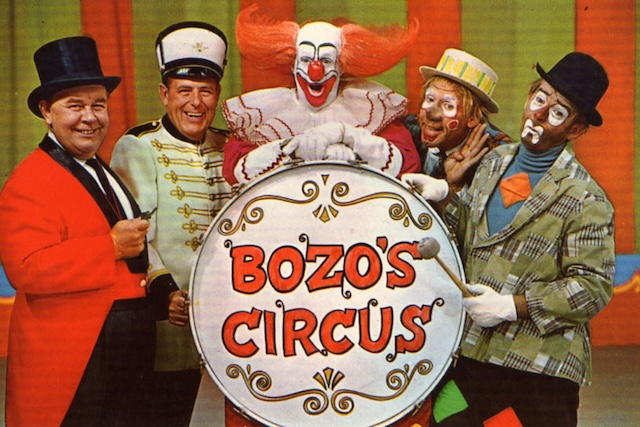
When it comes to sampling lawsuits, most people expect the usual culprits: singers, rappers, or bands being sued for using a snippet of a song without permission. But Too Much Joy, a quirky indie band from the late ’80s and early ’90s, managed to take things to a whole new level of absurdity. They didn’t get sued by another musician or producer. Oh no—they got sued by Bozo the Clown.
Yes, you read that right—Bozo the Clown, the beloved children’s TV character. For those unfamiliar, Bozo wasn’t a single person but a fictional character created in 1946. Over the years, the role was played by various performers, including the famous NBC weatherman Willard Scott. By the time Too Much Joy came along, Bozo was a cultural icon—a big red nose, oversized shoes, and a knack for entertaining kids. But apparently, even Bozo had limits when it came to how his image and voice were used.
In 1987, Too Much Joy released an album called “Worked Over & Strapped Over”, which included a peculiar sample. The band didn’t sample a song or a musical riff—they sampled a single line spoken by Bozo the Clown:
“And then I found something in one of my pockets. It was about as big as your shoe, but it was shaped like a rocket.”
For context, the line was likely from an episode of The Bozo Show, where Bozo, in true clown fashion, was probably entertaining kids with a bit of silliness. Too Much Joy, however, found the line hilarious and decided to use it for comedic value in their music. Whether it was meant as a parody or just a random gag, the band didn’t expect it to spark a legal firestorm.
Enter Larry Harmon, the man who owned the rights to the Bozo character. Harmon was not amused. He sent the band a cease and desist order, demanding that they stop pressing the album immediately or face a full-blown lawsuit. For Too Much Joy, the situation must have been surreal. Here they were, a punk rock band known for their offbeat humor, being threatened by a clown—albeit a very litigious one.
Faced with the threat of legal action, Too Much Joy decided to comply. They agreed to stop distributing the album with the Bozo sample. But here’s where things get even stranger: it turns out that Bozo didn’t just want the band to stop using his voice—he wanted cold, hard cash.
According to reports, Larry Harmon received $200 from the studio as compensation for the unauthorized use of Bozo’s likeness and words. Yes, you heard that right—$200. It’s unclear whether the money went to Harmon personally or was funneled back into the Bozo franchise, but it’s safe to say that Bozo didn’t leave empty-handed.
The case of Too Much Joy vs. Bozo the Clown is often cited as one of the most bizarre sampling lawsuits in music history. It raises some interesting questions about the boundaries of copyright law, especially when it comes to characters and spoken words. Unlike a song or a musical composition, Bozo wasn’t a traditional “work” that could be copyrighted in the usual sense. But his image, voice, and persona were protected intellectual property—and Larry Harmon made sure no one forgot it.
For Too Much Joy, the lawsuit was likely a mix of embarrassment and amusement. The band was known for their irreverent humor, and getting sued by a children’s TV character probably felt like a punchline come to life. But it also served as a cautionary tale about the unexpected ways that sampling could lead to legal trouble—even when the source material isn’t a song.
As for Bozo, the lawsuit didn’t seem to hurt his legacy. The character continued to entertain kids (and nostalgic adults) for years to come—proving that even in the face of a lawsuit, Bozo always landed on his feet.

